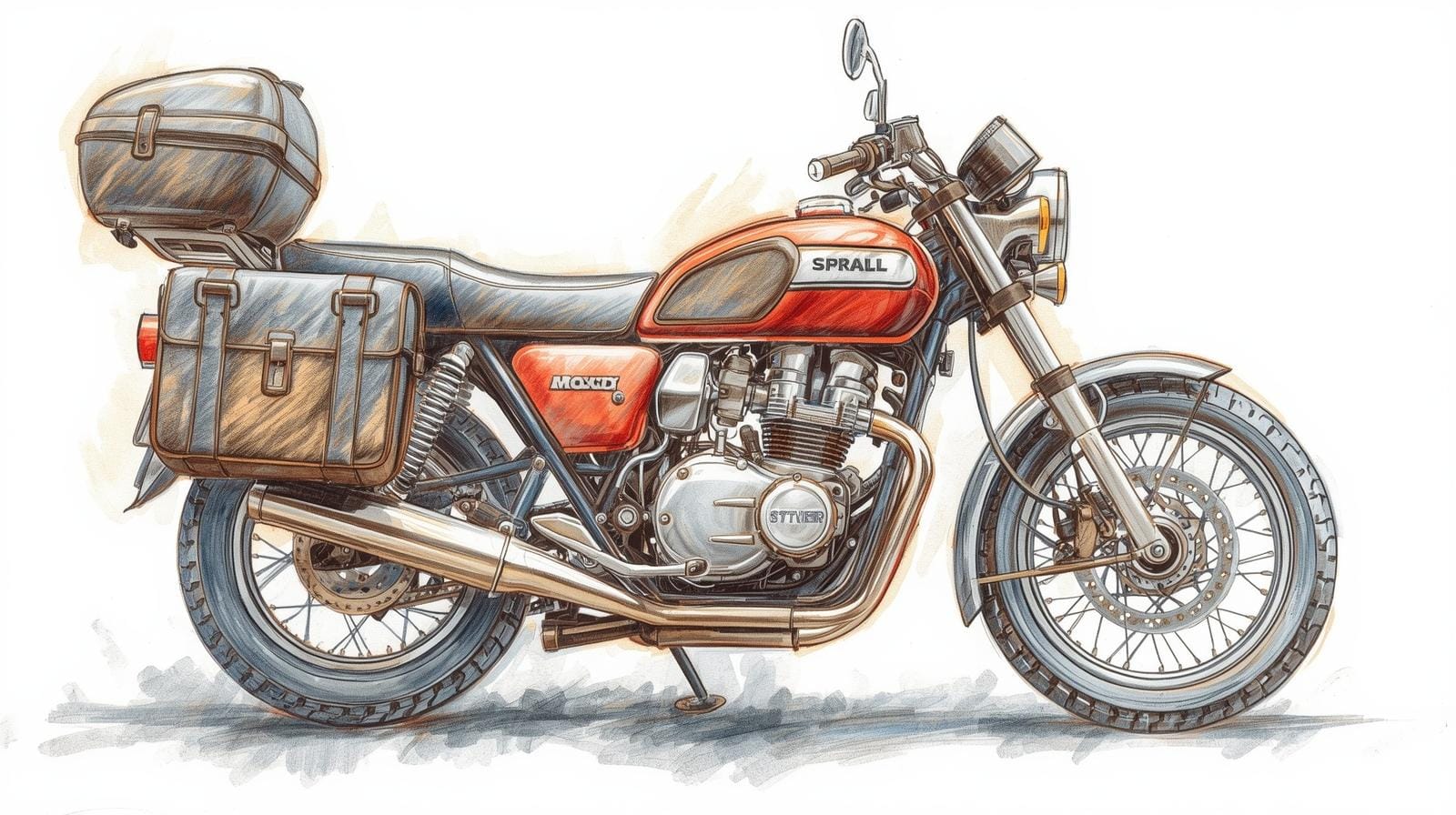Motorcycle Fines and Laws You Need to Know When Riding a Motorcycle
If you’re riding a motorcycle in Canada, failing to obey the rules on the road will not only get you hefty fines, but it could also affect your insurance premiums. Not to mention, reckless behavior that endangers other road users could result in the suspension or loss of your license.

The laws may vary slightly by province, but the core principle is the same across the country. In this article, we’ll discuss some of the most fundamental laws you should know if you’re riding a motorcycle in Canada — and what the consequences are if you break them.
Motorcycle License Requirement
First things first, it’s illegal to ride a motorcycle in Canada on public roads without a valid license. Each Canadian province has different requirements, but they all follow a graduated licensing system designed to make the new riders gain experience and skills gradually.
For instance, it can take you at least 20 months to attain a full motorcycle license with no restrictions if you have no experience riding a motorcycle in most Canadian provinces. Before you graduate with a full license, you will have a learner’s license with restrictions such as no alcohol consumption, no night driving, and no carrying passengers. Once you’ve gained enough experience, you will be required to pass motorcycle road tests at different intervals before your restrictions are lifted with the full license.
If you’re caught riding without a motorcycle license, you could be fined up to $2,000. On top of that, your motorcycle will likely be seized and impounded.
A Helmet is Mandatory in Canada
If you’re caught riding a motorcycle without wearing a helmet, you could get fined up to $300, depending on the province. Keep in mind that any passenger on your bike is also mandated to wear a helmet. Besides the fines, demerit points could be added to your record, which will make your insurance premiums more expensive.
But that’s not all; every rider and passenger must wear a helmet with safety certification labels approved by DOT, Snell, or ECE. The law doesn’t specify if you should wear a half-face or a full-face helmet, as long as it meets the required safety standards. However, a full-face helmet gives you better protection than a half-face helmet.
The only legal exception for not wearing a helmet is due to medical or religious reasons, but that doesn’t apply in all provinces. More succinctly, only Alberta, Ontario, Manitoba, and Nova Scotia have statutes that make it legal to ride a motorcycle without wearing a helmet if you’re a member of the Sikh religion.
Riding Under the Influence Is a Serious Offense
Riding your motorcycle under the influence is a serious offense that will not only get you a minimum fine of $1,00,0 but you could lose your license and face potential jail time of up to 10 years, especially if your actions caused a fatal accident.
If you’re subjected to a test and your blood alcohol concentration (BAC) exceeds 0.08%, you could be liable for driving under the influence. However, in some provinces and territories, you could still land in trouble with the law if your BAC exceeds 0.05% — you won’t face criminal charges but your license could be suspended for up to 7 days. If you’re on a learner’s license, any trace of alcohol in your blood could get you penalized.
Beyond that, the law doesn’t just apply to alcohol-impaired driving but also to any detectable drugs in your system, including THC, cocaine, LSD, ketamine, PCP, psilocin, psilocybin, or methamphetamine, that could impair your ability to ride safely.
Noise and Equipment Regulations
Canada doesn’t have a nationwide law regulating motorcycle exhaust noise; instead, each province and municipality sets its own rules. For example, British Columbia defines “excessive noise” as anything over 85 dBA, while Québec sets the limit at 100 dBA. In contrast, some provinces don’t specify an exact decibel limit but prohibit motorcycles from making “unnecessary noise”— a term that can be open to interpretation and subject to the discretion of law enforcement.
However, in some cases where the law doesn’t clearly define the decibel limit, it could be illegal to modify your exhaust system to make it noisier. Since noise limit levels vary by province and territory, it’s best to stick with the stock exhaust system to avoid a fine. If you have to install an aftermarket exhaust, you can choose a certified low-noise system that won’t cause a nuisance three blocks down your neighborhood.
Keep Track of Your Demerit Points
If you commit traffic offenses, you will accrue demerit points, which will be added to your driving record. If you accumulate too many demerit points, your motorcycle license will be automatically suspended.
In most provinces, you could have your motorcycle license suspended if you accumulate 15 demerit points — but in some provinces and territories, you could be on the hook with 12 points. Not to mention, if you’re on a learner’s or probationary license, you could be suspended with 4 to 6 demerit points.
Another vital point to keep in mind is that demerit points accumulate based on the traffic offenses you commit. For example, running a red light may add 3 points to your record, while reckless driving or failing to stop for a school bus could result in 6 points. Fortunately, in most provinces, demerit points are removed from your record after two years.
That said, it’s essential to keep track of your demerit points each time you receive a ticket, as they can have long-term consequences — potentially impacting both your insurance rates and your license status.
